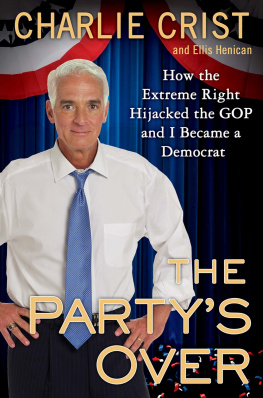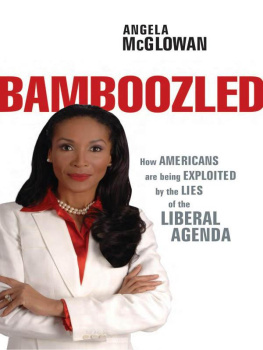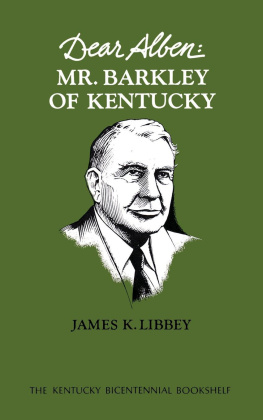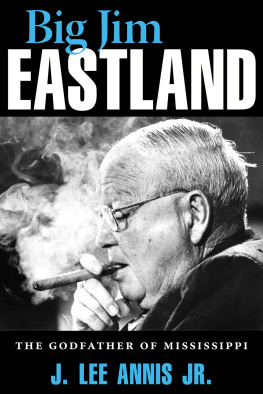Published by Louisiana State University Press
Copyright 2015 by Louisiana State University Press
All rights reserved
Manufactured in the United States of America
First printing
DESIGNER: Mandy McDonald Scallan
TYPEFACE: Whitman, Trend Sans
PRINTER AND BINDER: Maple Press, Inc.
Library of Congress Cataloging-in-Publication Data
Zwiers, Maarten, 1979
Senator James Eastland : Mississippis Jim Crow Democrat / Maarten Zwiers.
pages cm
Includes bibliographical references and index.
ISBN 978-0-8071-6001-5 (cloth : alkaline paper) ISBN 978-0-8071-6002-2 (PDF) ISBN 978-0-8071-6003-9 (ePub) ISBN 978-0-8071-6004-6 (MOBI) 1. Eastland, James O. (James Oliver), 19041986. 2. Eastland, James O. (James Oliver), 19041986Political and social views. 3. LegislatorsUnited States Biography. 4. United States. Congress. SenateBiography. 5. Democratic Party (U.S.) Biography. 6. LegislatorsMississippi Biography. 7. MississippiPolitics and government20th century. 8. MississippiRace relationsPolitical aspectsHistory20th century. I. Title.
E748.E135Z95 2015
328.73'092dc23
[B]
2014045216
The paper in this book meets the guidelines for permanence and durability of the Committee on Production Guidelines for Book Longevity of the Council on Library Resources.

ACKNOWLEDGMENTS
Many people and organizations helped me to complete this book. In particular, Doeko Bosscher at the University of Groningen and Adam Fairclough at Leiden University offered thoughtful comments on the manuscript. Research for this work began during my graduate studies at the University of Mississippi. Without the financial support of the Fulbright Commission, VSBFonds, Prins Bernhard Cultuurfonds, and Hendrik Mullers Vaderlandsch Fonds, my dream of living and studying in the Deep South would not have been possible. The Netherland-America Foundation sponsored my exchange at the University of North Carolina at Chapel Hill and my masters degree at the University of Mississippi, for which I am extremely thankful. I received grants from the Netherlands American Studies Association, the Lyndon Baines Johnson Foundation, the Harry Truman Presidential Library, the Association of Centers for the Study of Congress, the Roosevelt Study Center, and the Nicolaas Mulerius Foundation. All were critical in the successful completion of my book. Discussing James Eastland and southern Democrats with my colleagues in the Departments of History and American Studies at the University of Groningen has been both illuminating and fun.
I have come to consider Oxford, Mississippi, my second home. I met great people during my stay theretoo many to name here, but they are all in my heart. I am especially indebted to the faculty and staff of the Center for the Study of Southern Culture. I traveled all across the United States for archival research, and staying with friends not only made these trips financially possible, but also very enjoyable. However, most of the research for this book took place in the Department of Archives and Special Collections at the University of Mississippi, where I started out as a student worker. I want to thank Leigh McWhite for hiring me in the first place and for her suggestions as I was working on the manuscript. My year in Zeeland as visiting fellow at the Roosevelt Study Center was memorable. The folks at the Center made the Deep South of the Netherlands a pleasant place to live and work.
I met David Goldfield at the Southern Historical Association conference in Louisville in 2009, and I appreciate his early interest in my work on Eastland. Rand Dotson and Lee Sioles at LSU Press were very helpful in guiding the manuscript through the different stages of the publication process. Derik Shelor did a terrific job as copyeditor. Finally, I want to thank my family and friends for their continuing love and support.
SENATOR JAMES EASTLAND
INTRODUCTION
J AMES EASTLAND was having dinner at Duke Zeiberts steakhouse when Joe Forer walked in. Located on the corner of Connecticut Avenue and L Street, just a few blocks from the White House, Zeiberts restaurant was an intricate part of Washington politics, a place filled with laughter and drinking and animated talking and table hopping and, underneath it all, the endless Washington scramble for inside knowledge, position, and power.
James Eastlands political power was based on his ability to compromise. In historiography and public memory, Eastland is generally remembered as a ranting southern extremist, a mad dog let loose in the streets of justice, in the words of NAACP spokesman Clarence Mitchell. It is this Janus-faced quality of southern Democrats that delivered them the respect and power they needed to remain politically effective, both in their home states and in Congress.
Eastlands political nexus extended from his plantation office in Doddsville to Capitol Hill and the backrooms of Washington. His power manifested itself formally and informally, and he had access to the resources of the federal government to implement his worldview. The senators network and influence were widespread, and he knew how to put both to effective use. Eastlands political instincts and the willingness of state institutions to accommodate him form an important explanation of why the civil rights movement had so much trouble generating a true transformation of southern (and American) race and class relations. Senator Eastland understood power and its proper application better than anybody Ive ever been around, his administrative assistant Bill Simpson recalled. The senator understood what it was and how to use it properly and in the right degree. He never pounded a table, never screamed or hollered. He just got the job done.
As a politician, James Eastland wore many masks. Before his supporters in Mississippi and the South, he called for a united, regional crusade against government intervention in race relations. Eastland depicted labor unions, civil rights organizations, and other liberal groups as part of a global communist conspiracy, which had also successfully coopted most of the justices on the Supreme Court. Against such a powerful enemy, compromise was not an option. The fate of the United States hung in the balance, and with every cession the power of the Red Menace grew stronger. Eastlands conservative ideology did not just focus on the defense of segregation, but included various other elements, such as a commitment to laissez-faire capitalism, strict immigration laws, and state sovereignty. He considered an undiluted Anglo-Saxon culture and local control to be the heart of Americanism, and it therefore made sense to him that the communists would attempt to destroy exactly these constitutive parts. James Eastland thought he was waging a war for the soul of America. And according to the planter-politician, that soul was located in the old Confederacy.
But Eastlands political performance often had a dual nature. While he publicly called for no compromise in the fight against desegregation and denounced the federal government for interfering in state matters, he also needed the federal government to secure his power. The distribution of federal patronage helped Eastland build his political machine in Mississippi, and he could reward his followers by wielding his clout as a U.S. senator. He used federal funds to investigate his enemies and he received agricultural subsidies from Washington to improve his plantation. Moreover, in the theater of national politics, compromise was often unavoidable, and Eastland did not shy away from it. But such negotiations normally took place behind the scenes, like in Zeiberts restaurant. This kind of flexibility was necessary to gain influence and reach political objectives, not only in Congress, but also in the national Democratic Party. In public, he solemnly maintains that the Supreme Court has been indoctrinated and brainwashed by left-wing pressure groups who have also managed to gain control of the government of the U.S. In private, his lips quirk with suppressed laughter when the visitor challenges the authenticity of his statements, correspondent Fern Marja wrote after conducting an extensive interview with Eastland. There is in his response the deep, amused cynicism of a politician trying to snatch up the torch he reluctantly helped his colleagues rip from the hands of Wisconsins Sen. McCarthy.









